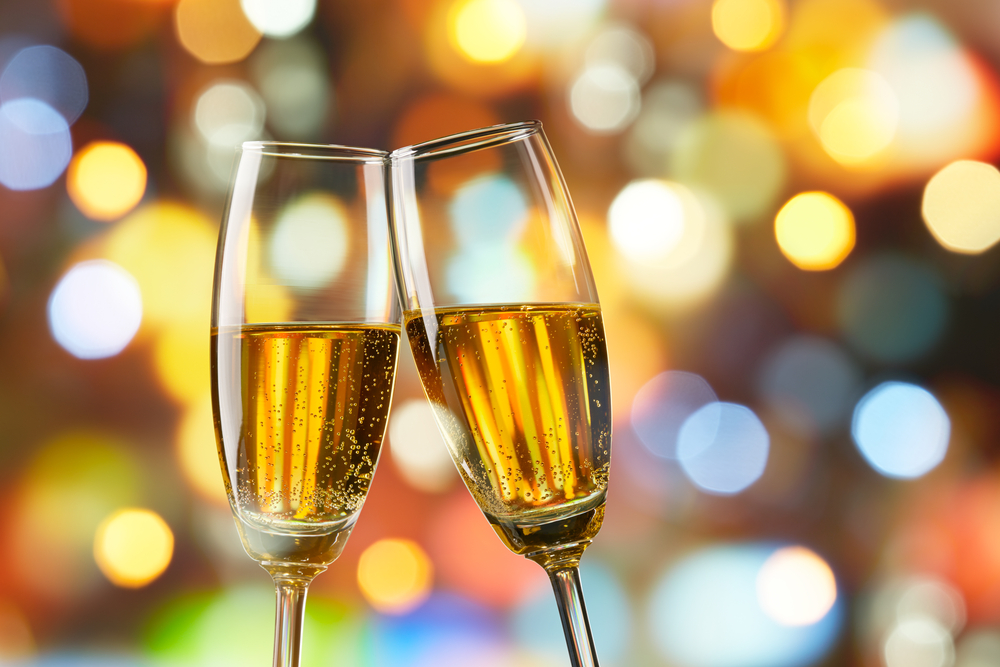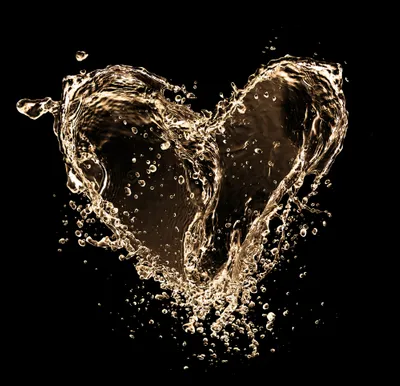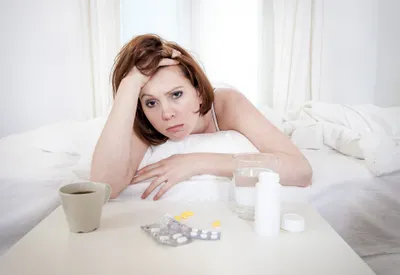I always feel so classy when I drink champagne. Not because I swill expensive bottles of bubbly, but because I drink it so rarely compared to wine. Now I’m a big proponent of drinking red wine for the cardio-vascular benefits. I don’t overdo it, but I’m known to enjoy a glass pretty much daily with dinner.
However, many recent studies put my penchant for red vintages to shame. It would seem that many food scientists are raising a glass in toast to the many health benefits of champagne and sparkling wine—since most bubbly is made with both red and white grapes. So let’s compare, which is healthier champagne or wine?
1. Champagne is Lower in Calories
If you’re looking forward to enjoying a beverage (or two) but still want to cut calories, champagne and sparkling wine will always come in lower than wine. For instance, a 4-ounce glass of champagne will run you roughly 90-calories—whereas a 4-ounce serving of red wine will deliver 100-calories.
2. Use a Flute for Portion Control
It turns out there are more benefits to the typical champagne flute than beauty alone. The fluted glass, which equals approximately 4- to 6-ounces, keeps your champagne serving size smaller than most red or white wine goblets. Even if you fill your flute twice, you may still be consuming less than the 9-ounces permitted in most standard wine glasses.
3. Imbibe Less With Bubbles
The bubbly affects of champagne also have more benefits that a massage for your tongue. The carbonation in champagne actually promotes slower imbibing—so as a result you consume less alcohol, at a much slower rate. It’s true; fizzy beverages do seem to fill me up faster than still beverages.
4. Antioxidant Rich
Health aficionados often tout red wine for its high polyphenol-count. However, a 2009 Epidemiological study from the University of Reading UK’s, School of Chemistry, sites that like red wine, polyphenols (a type of antioxidant) are also prevalent in champagne. So like red vintages, champagne may be linked to lowering blood pressure, improving cardiovascular health, and lessening the affects of free radical damage.
5. The Dreaded Champagne Headache
Despite the clear health benefits, we can’t forget the dreaded champagne headache. Drinking too much bubbly can certainly come back to haunt you the next day. Most researchers speculate that the champagne headache comes from a combination of histamine and tannin compounds (which are also found in wine), plus the carbonated push of alcohol to the bloodstream. Champagne is also linked to triggering migraines in chronic sufferers.
6. Excess Sugar Rush
Remember, just because bubbly is lower in calories (90-calories per 4-ounce serving) doesn’t mean that same glass is lower in sugar. In fact, champagnes tend to register more sugar content compared to red and white wines. If you’re seeking a dry champagne, opt for a brut grape brand of bubbly.
7. High Acidity
Compared to red and white wines, champagne also tends to have more acidity per glass—meaning the high acidity can wreak havoc on your teeth and oral health because it gradually wears away at your protective tooth enamel.
8. Cork-Popping Dangers
You might laugh, but I’ve seen grown men almost put an eye out when recklessly uncorking a bottle of bubbly. Champagne corks are under pressure, which means foolishly pointing the top of the bottle in willy-nilly direction can end in a black eye or a broken tooth. So refrain from shaking the bottle and use a towel to cover the top when you pop—angled away from you and your audience!











